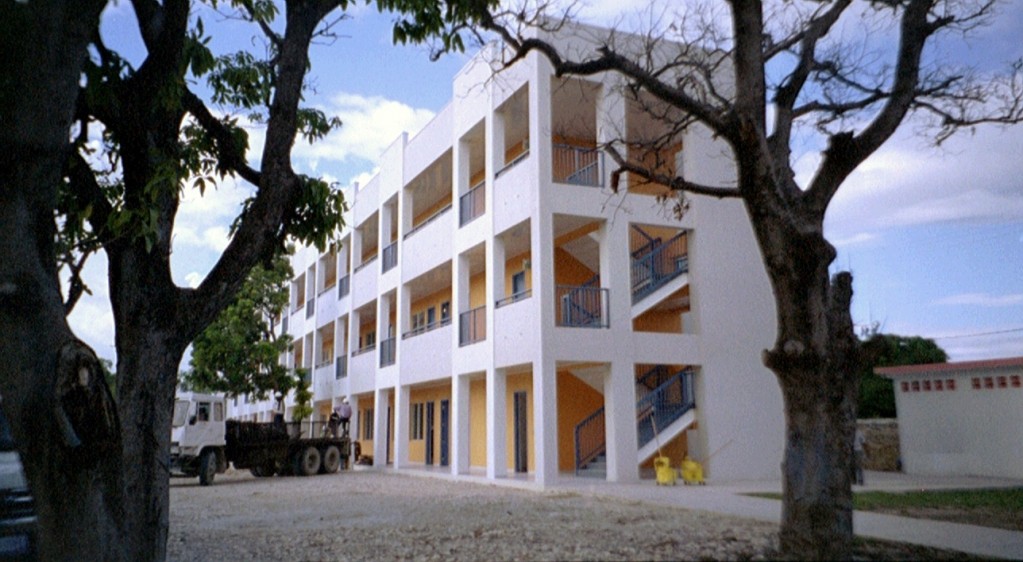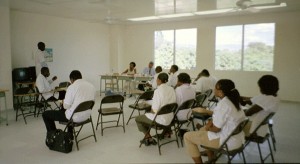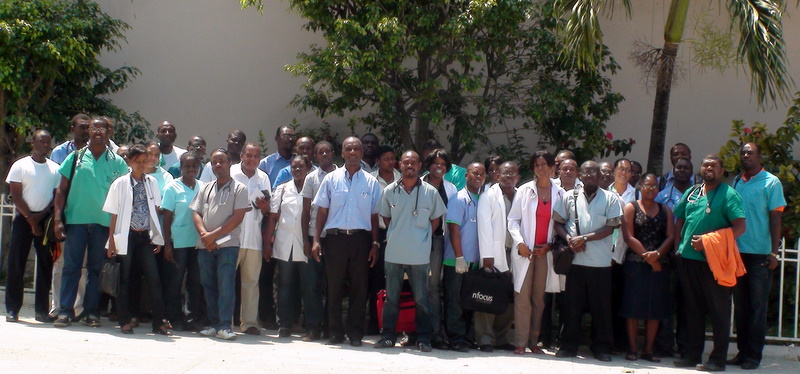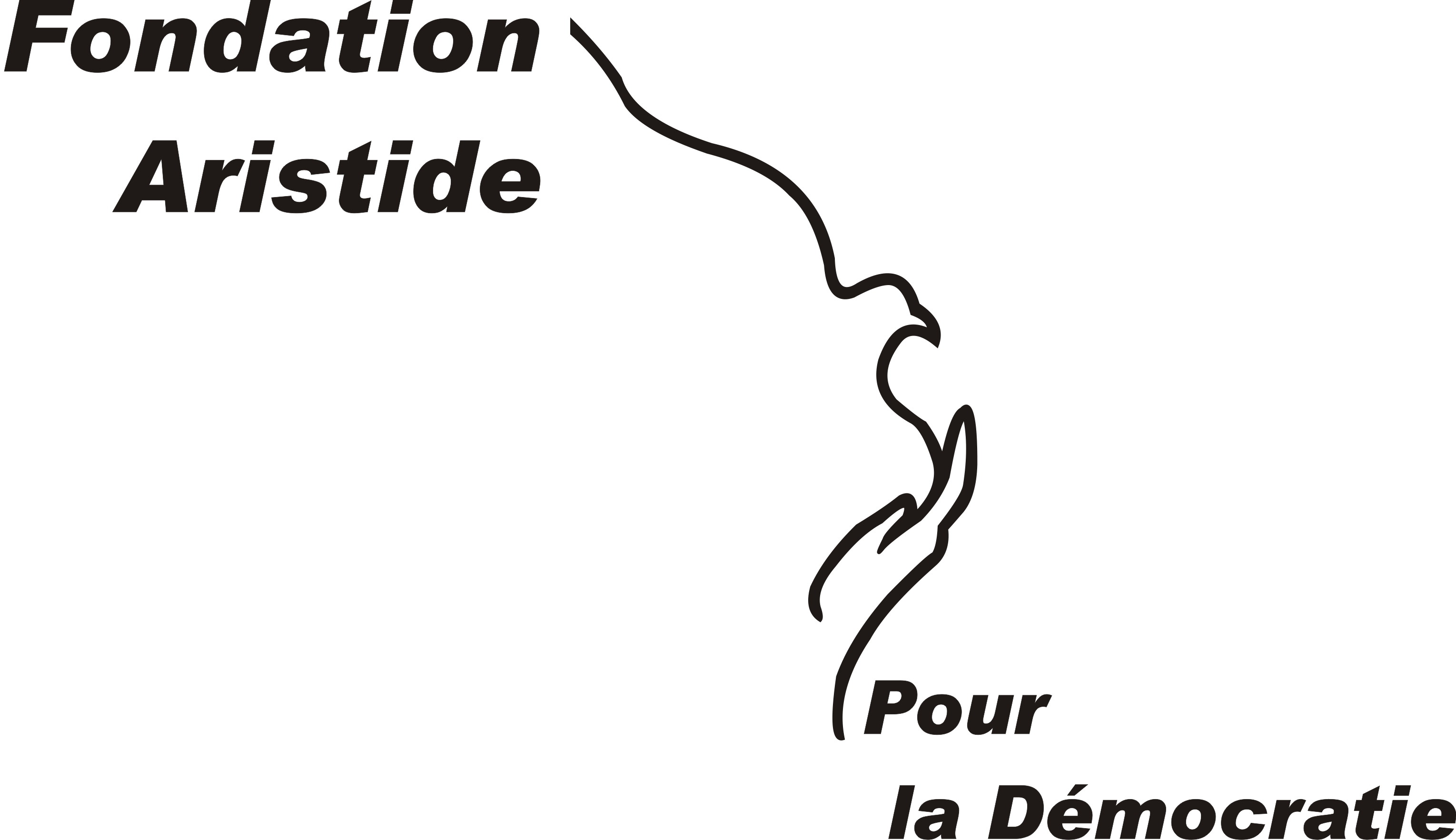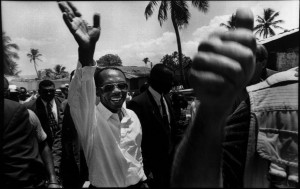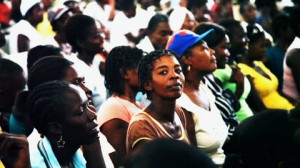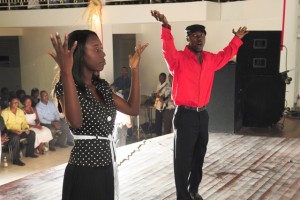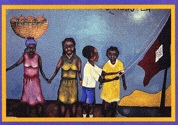The University of the Aristide Foundation (UniFA)
In 2001 the Aristide Foundation for Democracy broke ground on the construction of Haiti’s largest medical school. Haitian, American, Cuban and European physicians joined in this initiative, a collaboration made possible by restored diplomatic relations between the governments of Haiti and Cuba. Beginning in the late 1990’s Cuba sent doctors to Haiti, and opened its medical schools to Haitian students. The ADF took this cooperation one step further by opening a medical school (UniFA) where Cuban and other medical professors trained Haitian doctors in Haiti. 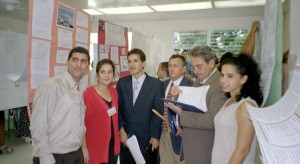 In 2001 the first class of medical students, selected through a rigorous admissions process, began their studies within the AFD buildings, and then in 2003, moved to the newly constructed UniFA campus (about 2 miles from the Foundation itself.)Unlike other faculties in Haiti, this one recruited medical students from poor families residing in each of Haiti’s nine departments. Talented young people from rural Haiti had previously found it nearly impossible to make their way to medical school, but UniFA sought out young men and women from poor families, who committed to returning to work in communities throughout Haiti once they finished their training. UniFA both created much-needed educational opportunities, and answered a desperate need for doctors.
In 2001 the first class of medical students, selected through a rigorous admissions process, began their studies within the AFD buildings, and then in 2003, moved to the newly constructed UniFA campus (about 2 miles from the Foundation itself.)Unlike other faculties in Haiti, this one recruited medical students from poor families residing in each of Haiti’s nine departments. Talented young people from rural Haiti had previously found it nearly impossible to make their way to medical school, but UniFA sought out young men and women from poor families, who committed to returning to work in communities throughout Haiti once they finished their training. UniFA both created much-needed educational opportunities, and answered a desperate need for doctors.
By 2004, 247 medical students were studying medicine at UniFA and a School of Nursing was to open in the fall of 2004. The February 28, 2004 coup d’etat brought all of this progress to a halt. AFD staff and UniFA faculty were forced into exile or hiding within the country. And in early March 2004 the United Nations/US military forces in the country drove the students off the campus, occupied the site and turned it into a military barracks. The campus remained under the control of foreign forces until 2007 when it was officially turned back over to the AFD.
Despite political resistance from the defacto government in Haiti, AFD staff worked with the Cuban government to make sure that the 247 UniFA medical students were able to continue their studies in Cuba. Most of them have since received their medical degrees, returned to Haiti, and were engaged in their required social service at the time of the quake. They have been involved in relief efforts across the country, and make up the bulk of the ADF doctors working with Partners in Health on the Mobile Clinic Project and staffing Clinics at the AFD auditorium.
The reopening of UniFA is a top priority of the AFD. In early 2009, UniFA opened a pre-University school of languages and computer sciences, with Spanish languages classes offered by UniFA’s original Cuban faculty. While the funding to reopen the Medical School was not yet available, these computer and language courses were a first step, and answered a huge demand for any post-baccalaureate training in Haiti. Thousands of young high school graduates lined up on the UniFA campus the first day of inscription. Three hundred were accepted, and were studying at UniFA at the time of the earthquake.
The earthquake destroyed almost entirely what little Haiti had as medical training infrastructure: the State University and hospital collapsed, as did the State Nursing School (killing over 200 students) and the medical faculty at the private University Quisqueya is also reportedly in ruins. The UniFA buildings incurred some damage, but nothing on the scale of what has happened in central Port-au-Prince. The campus is still there, there is no shortage of qualified young Haitians ready to serve their country as doctors. The urgency of reopening the Medical School at UniFA could not be greater. We urge you to join us in finding the resources – human, financial, political – to make that happen.
